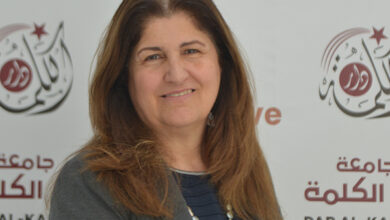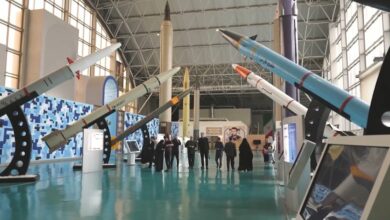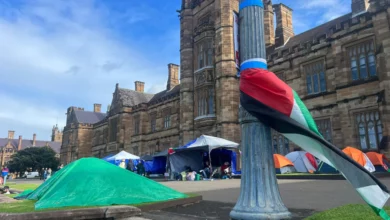Kfrar Kila, Lebanon–Old men yawn outside shuttered shops and empty restaurants in Lebanese villages near the border with Israel, where only the occasional car or UN peacekeeping patrol navigate the dusty, potholed roads.
Neglect still stalks the south, 10 years after Shia Hizbullah guerrillas drove Israeli occupation troops out.
There are few jobs for villagers here. They complain of an uncaring government and fear that another war may be just around the corner. In such a climate, only the boldest would invest.
Some southerners say money was more plentiful during the 22-year Israeli occupation, when some Lebanese worked in Israel.
Abu Hussein’s Shia family has owned a restaurant in the frontier village of Kfar Kila since 1975, enduring successive upheavals, from struggles between Palestinian guerrillas and Christian militiamen to the Israeli occupation, the “liberation” in 2000 and most recently the 2006 Israel-Hizbullah war.
The restaurant’s most lucrative era was between 1982 to 2000, Abu Hussein told Reuters in his empty dining hall decorated with Shia religious symbols, a few meters from a border fence with an Israeli flag fluttering beyond.
Abu Hussein hangs a Spanish sign outside to try to attract customers from the Spanish peacekeeping unit in the area.
“After (the Israeli withdrawal in) 2000, business really slowed down. It’s 80 percent down. On a good day, I might make about US$130, whereas before we’d make $400,” he said.
“We were expecting the area would flourish after the liberation. But just as the government forgot about us during the occupation, they’re still forgetting us now.”
Israel pulled out on May 25, 2000 after relentless Hizbullah attacks on its troops in Lebanon. After a few years’ respite, Israel’s overwhelming response to Hizbullah’s capture of two of its soldiers devastated the south in the month-long 2006 war.
Hizbullah, with funds from Iran, compensated people and rebuilt roads and homes. Their livelihoods shattered, many southerners blamed the US-backed Beirut government for failing to pour in money for reconstruction and development.
The south, never a government priority, is unlikely to see much of this year’s spending budget of US$12.3 billion, 14 percent up on last year. Lebanon’s economy has boomed in the last few years, but is saddled with a crippling US$51 billion debt.
Southerners resent the state’s neglect and often contrast it with the social services provided by Hizbullah, which the United States views as a terrorist group backed by Syria and Iran.
The region has stayed largely quiet since 2006 with UN and Lebanese army troops monitoring the border. But unsubstantiated Israeli allegations that Syria has transferred long-range Scud missiles to Hizbullah have caused rumors of war to swirl.
Israel and Hizbullah have traded threats, even though each insists it is not seeking another conflict. One potential flashpoint is Shebaa Farms, a tiny area claimed by Lebanon but still occupied by Israel, which says it was Syrian territory.
Farmers in the gentle hills of south Lebanon, lush and green in spring, have long grown tobacco, citrus and bananas, but there are no processing factories to provide more jobs.
Many enterprising southerners have migrated to West Africa to work as traders or industrialists, especially in the rich mining sector. But most have had to cope as best they can with intermittent wars, tenuous peace and drastic electricity cuts.
In the border village of Khiam, traders at a weekly market try to sell cheap clothes and plastic goods. By the afternoon, dozens of vendors morosely pack up their mostly unsold wares.
“Before the liberation, I used to work as a taxi driver. Two years ago I opened a shoe store. As you see, we’re just swatting flies,” said Abu Ali Hassan as his friends nodded in agreement.
Sheikh Qabalan Qabalan, who heads the government’s Council for the South, a development agency, says the state should open factories and provide tax breaks for investors.
The budget has allocated about US$40 million for his agency, although he says he has only received a third of that amount.
“What kind of money will the government hand over to the south? There are no job opportunities, no tourism, no industry,” Qabalan said in Beirut. “Who would start a project in the south, when you have to pay the same utility rates as in Beirut?”
“The south grows tobacco, but we don’t have the factories to turn it into cigarettes. So we sell the tobacco and then buy it back when it’s a finished product,” he said.
Amidst the prevailing economic gloom are unexpected bright spots provided by some daring entrepreneurs.
Take Khalil Abdallah, who left a life in Abidjan to build a tourist resort on his land by the banks of the Wazzani River, along the UN “Blue Line” dividing Israel and Lebanon.
The defiant 58-year-old construction contractor and his partners are sinking US$3 million into the 50,000-square meter resort that will boast assorted swimming pools, chalets, restaurants and even a conference center and wedding hall.
At the “Wazzani Fortress Tourist Village”, with its straw roof chalets and Moroccan-style buildings, visitors will be able to lunch by the river beneath the nearby foothills of the Israeli-occupied Golan Heights, which belong to Syria.
Occasionally Israeli soldiers venture onto their side of the hillside to peer curiously at the construction cranes.
Abdallah dismisses fears that the shooting might resume.
“If we keep talking about whether a war will happen or not, no one will do anything.”




